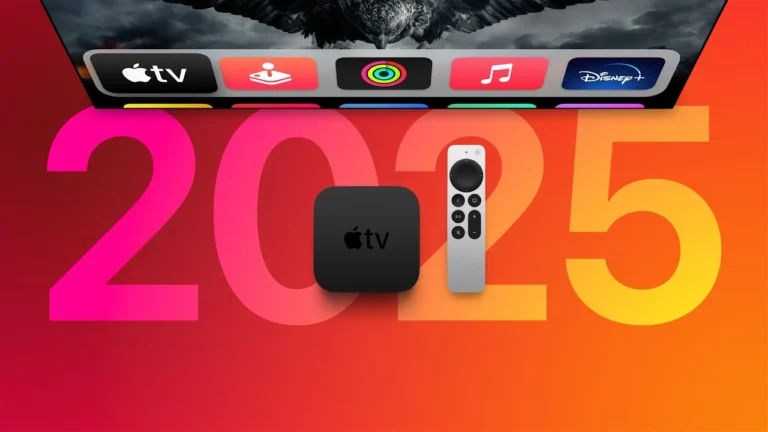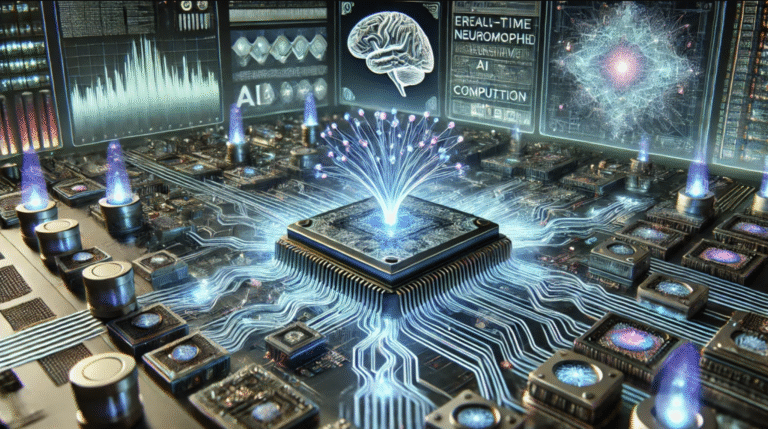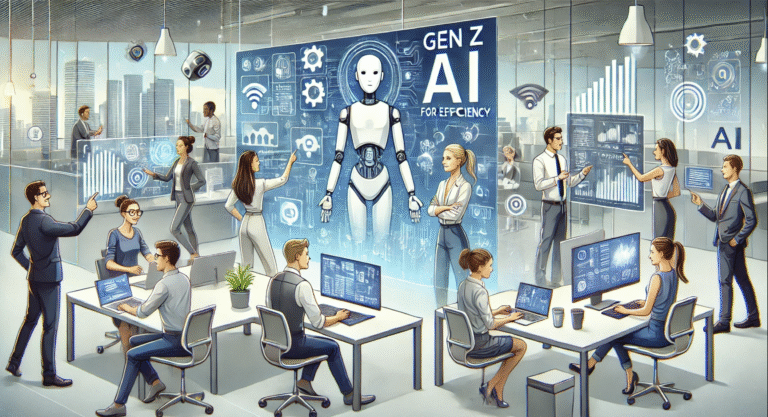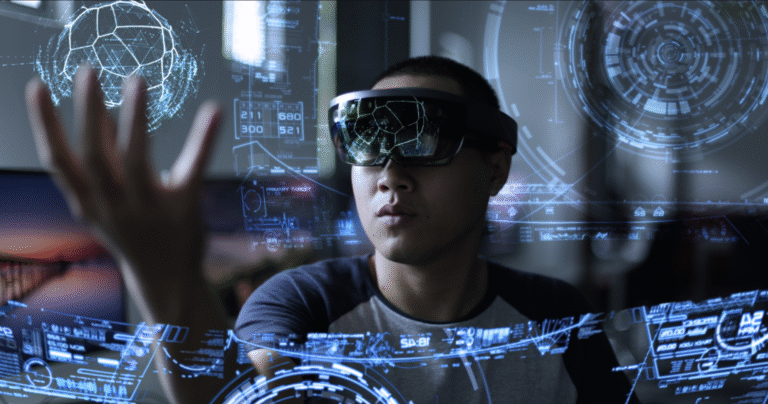Explore how Nvidia is revolutionizing quantum computing with cutting-edge technologies and strategic collaborations. Discover their role in advancing quantum research and its potential impact on industries like healthcare, energy, and finance.
What is Quantum Computing?
Imagine a computer that can think like a spinning coin, existing as both heads and tails until it lands. That’s the essence of quantum computing, a technology that leverages quantum mechanics to process information in ways classical computers can’t. Unlike traditional bits, which are either 0 or 1, quantum bits (qubits) can be in multiple states simultaneously due to superposition. This allows quantum computers to tackle complex problems—like cracking encryption or simulating molecules—at speeds unattainable by classical systems.
However, quantum computing is still in its infancy. Challenges like qubit instability and error correction mean we’re not yet at the stage of practical, everyday use. But the potential is massive, promising breakthroughs in fields from cryptography to drug discovery. For millennials and Gen Z, who’ve grown up with rapid tech advancements, quantum computing represents the next frontier of innovation.
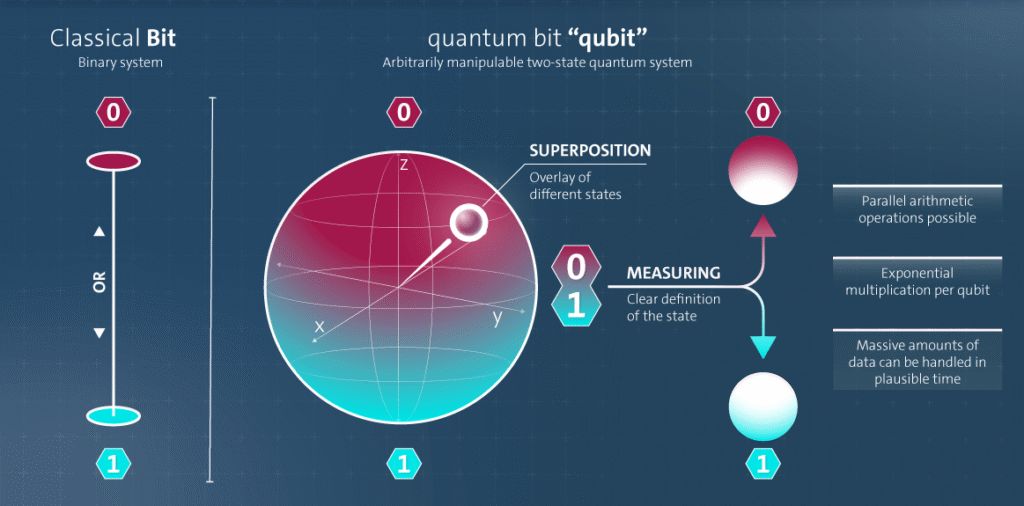
Nvidia’s Role in Quantum Computing
Nvidia isn’t building quantum computers in the traditional sense—no qubits are being crafted in their labs. Instead, they’re providing the critical infrastructure to make quantum computing a reality. Think of Nvidia as the architect laying the foundation for a quantum future, supplying the tools and platforms to support researchers and developers.
NVIDIA Accelerated Quantum Research Center (NVAQC)
In March 2025, Nvidia announced the NVIDIA Accelerated Quantum Research Center (NVAQC) in Boston. This center integrates quantum hardware with AI supercomputers, creating what’s called accelerated quantum supercomputing. It aims to solve key challenges, such as reducing qubit noise and transforming experimental quantum processors into practical devices [1]. By combining Nvidia’s powerful GPUs with quantum systems, the NVAQC is paving the way for faster, more reliable quantum computations.
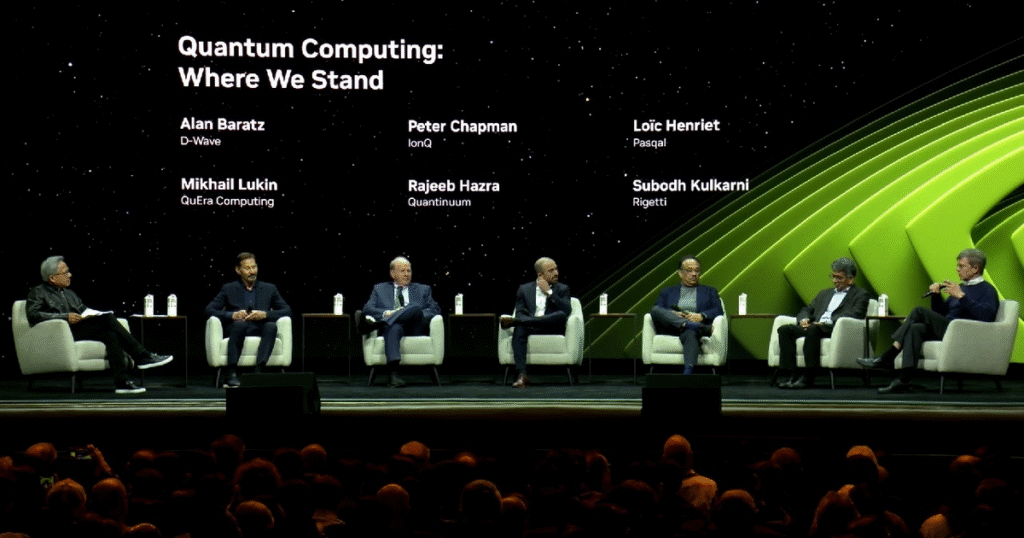
DGX Quantum System
Nvidia’s DGX Quantum system, introduced in 2023, is a game-changer. It’s the world’s first GPU-accelerated quantum computing system, pairing Nvidia’s GPUs with quantum control platforms like Quantum Machines’ OPX+. This hybrid approach allows researchers to run quantum algorithms alongside classical computing tasks, enabling applications like quantum error correction and hybrid algorithms [2]. It’s like having a supercharged calculator for quantum tasks within a larger computing ecosystem.
CUDA-Q Platform
The CUDA-Q platform is Nvidia’s open-source solution for hybrid quantum-classical computing. It integrates quantum processing units (QPUs), GPUs, and CPUs into a single system, making it easier for developers to create and test quantum algorithms [3]. For example, CUDA-Q can simulate quantum circuits with over 165 qubits, significantly speeding up research processes like fraud detection [3]. This platform is a boon for tech-savvy millennials and Gen Z developers looking to dive into quantum programming.
| Computing Type | Description | Use Cases |
|---|---|---|
| Classical Computing | Uses bits (0 or 1) for computation. | General-purpose computing, AI training |
| Quantum Computing | Uses qubits, leveraging superposition and entanglement for faster computations. | Cryptography, optimization problems |
| Hybrid Quantum-Classical | Combines classical and quantum computing for efficient problem-solving. | Quantum chemistry, machine learning |
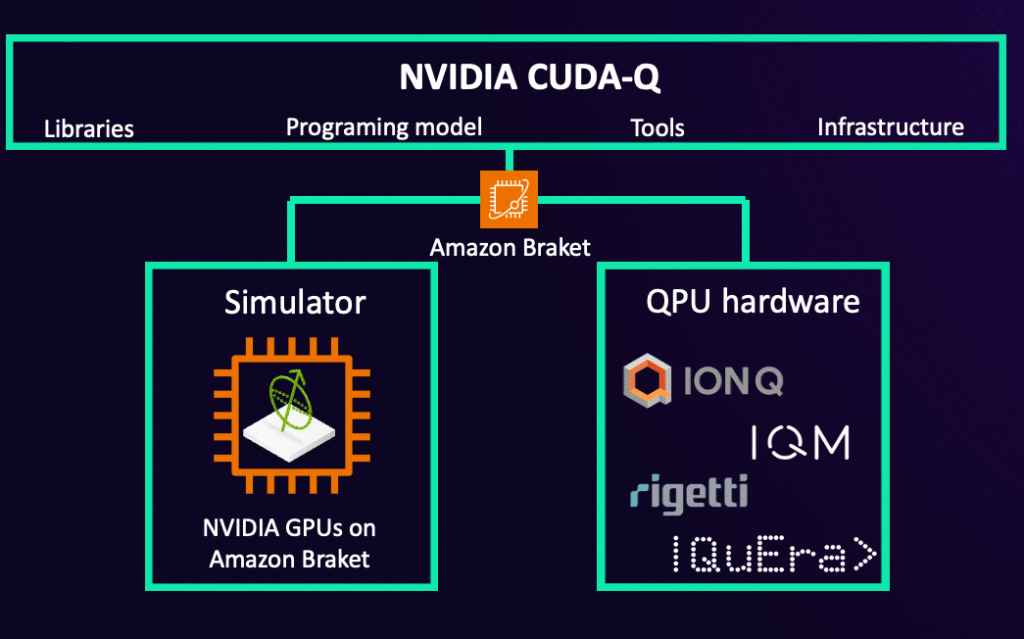
Collaborations and Industry Impact
Nvidia’s quantum computing efforts are amplified by strategic partnerships with industry leaders and academic powerhouses. The NVAQC collaborates with companies like Quantinuum, Quantum Machines, and QuEra Computing, as well as institutions like the Harvard Quantum Initiative and MIT’s Engineering Quantum Systems group [1]. These partnerships are crucial for addressing quantum computing’s toughest challenges, from improving qubit stability to developing practical applications.
ABCI-Q Supercomputer
A standout achievement is Nvidia’s role in powering the ABCI-Q supercomputer, launched in May 2025 at the Global Research and Development Center for Business by Quantum-AI Technology (G-QuAT) in Japan. Equipped with 2,020 Nvidia H100 GPUs and integrated with quantum processors from Fujitsu, QuEra, and OptQC, ABCI-Q is the world’s largest research supercomputer dedicated to quantum computing [4]. It’s designed to accelerate hybrid quantum-GPU workloads, bringing us closer to practical quantum applications.
“ABCI-Q will enable researchers in Japan to explore the core challenges quantum computing technologies face and speed the path to practical use cases,” said Masahiro Horibe, deputy director of G-QuAT [4].
Transforming Industries
Nvidia’s contributions are set to impact multiple sectors. In healthcare, quantum computing could accelerate drug discovery by simulating molecular interactions. In energy, it could optimize grid systems for sustainability. In finance, it could enhance portfolio optimization and risk analysis. Jensen Huang, Nvidia’s CEO, emphasized this potential: “Quantum computing will augment AI supercomputers to tackle some of the world’s most important problems, from drug discovery to materials development” [1].

Conclusion
Nvidia is not creating quantum computers but is shaping the quantum computing landscape through innovative platforms, powerful hardware, and strategic collaborations. The NVAQC, DGX Quantum, CUDA-Q, and ABCI-Q supercomputer are testament to their commitment to advancing this transformative technology. For millennials and Gen Z, who thrive on innovation and connectivity, Nvidia’s work offers a glimpse into a future where quantum computing could redefine how we solve complex problems.
As quantum computing evolves, Nvidia’s role will likely grow, bridging the gap between today’s research and tomorrow’s applications. Stay tuned to Nvidia’s official channels and events like GTC’s Quantum Day to keep up with this exciting journey.
References
[1] NVIDIA Newsroom, “NVIDIA to Build Accelerated Quantum Computing Research Center,” Mar. 18, 2025. [Online]. Available: NVIDIA Quantum Research Center
[2] NVIDIA Newsroom, “NVIDIA Announces New System for Accelerated Quantum-Classical Computing,” Mar. 21, 2023. [Online]. Available: DGX Quantum System
[3] NVIDIA Developer, “CUDA-Q for Hybrid Quantum-Classical Computing,” [Online]. Available: CUDA-Q Platform
[4] NVIDIA Newsroom, “NVIDIA Powers World’s Largest Quantum Research Supercomputer,” May 19, 2025. [Online]. Available: ABCI-Q Supercomputer
[5] Reuters, “Nvidia to open quantum computing lab, CEO says,” Mar. 21, 2025. [Online]. Available: Nvidia Quantum Lab
[6] The Quantum Insider, “As NVIDIA’s Quantum Day Nears, Analysts Suggest Event is More Than a Gesture,” Mar. 7, 2025. [Online]. Available: Nvidia Quantum Day


